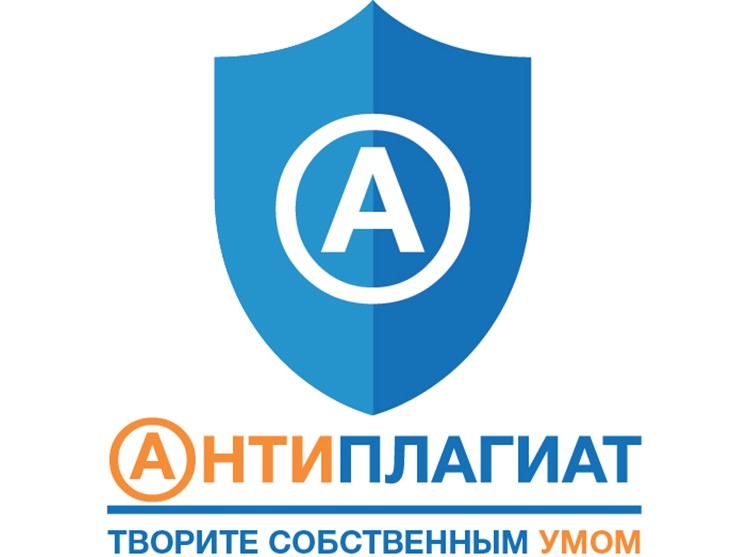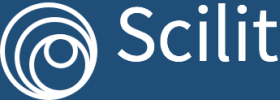Ethics
The decision to accept the submitted manuscripts for publication is made by Editorial Board in line with the requirements provided in:
- Recommendations of Committee on Ethics of Publications (COPE) and the Code of ethics of scientific publications (publicet.org/code);
- COPE Code of Conduct for Journal Editors and Guidelines for Best Publication Practice;
- Provisions adopted at the 2nd World Conference on Research Integrity (Singapore, July 22-24, 2010);
- Provisions set forth in Clause 70 “Copyright”, Civil Code of the Russian Federation
Principles for professional editors and publisher
Decision on publication. Editorial Board members ensure the publication of high quality materials and contribute to the development of economic science both in Russia and abroad. Before the manuscript is released, Editors carefully sel ect and revise the submitted materials; Editorial Board assesses validity, credibility and reliability of the reported data as well as the relevance and scientific merit of the research. Editorial Board reserves the right to reject the paper or require its revision/modification. Manuscripts can be rejected without reviewing if Editor-in-Chief determines that they do not fall within the aims and the scope of the Journal, or do not meet the Journal’s quality standards, or they are of limited scientific merit and are not appropriate for the Journal's readership. Before making a decision on publication, Editor-in-Chief can consult the members of Editorial Board or peer-reviewers.
Fairness and Impartiality. Editors should strive for fairness and impartiality in their practices and guarantee independent and objective judgement of submitted manuscripts in terms of their scientific value and topicality of the theme. Editors guarantee to consider submitted materials without prejudice as well as assess each manuscript irrespective of the author’s social status, racial, religious, national identity, sexual orientation, political preferences, etc.
Confidentiality. Editors and the Journal’s Editorial Board members shall not disclose any information related to the contents of the submitted papers to third parties, except for those who assess/edit such manuscripts. Unpublished data from the submitted materials shall not be passed to any third parties without the author(s) written consent. The information or ideas obtained in the course of editing and related to possible advantages shall remain confidential and shall not be used in personal interests.
Violation of ethical principles. The manuscript shall not be accepted for publication if there are sufficient grounds to believe that it is plagiarism. In case of any ethical claims connected with or arising out of the submitted manuscripts or published materials, Editor shall take appropriate answer-back measures to restore the violated rights on the basis of CORE’s Guidelines for Retracting Articles. If there is convincing evidence that the substance or conclusions of the work published in the Journal are false, incorrect or erroneous, Editor, after notifying the author(s) thereof, shall facilitate publication of appropriate comments/errata identifying those errors and, if possible, correcting them.
Code of Conduct for Authors
Manuscript submission standards. Authors shall submit only original and reliable research results. Deliberately false or fraudulent statements are not acceptable. Primary research results shall be complete and contain references to publicly available information sources so that the experts could, if needed, reiterate the research.
Authors bear primary responsibility for the content of the article and its publication. Editorial Board does not assume any responsibility before Authors, third parties and organizations for any possible damage/losses connected with or arising out of such publication. Editorial Board reserves the right to withdraw the published article if it has become obvious that the publication of such paper has caused the violation of someone's rights or the generally accepted codes of scholarly conduct and ethical behavior in professional scientific research.
Originality and plagiarism; multiple, redundant or concurrent publication. Authors of articles bear all completeness of responsibility for the content of articles and for the fact of their publication. Editorial office of the journal doesn't bear any responsibility before authors and/or the third parties and the organizations for the possible damage caused by the publication of article. Edition has the right to withdraw already published article if it becomes clear that in the course of the publication of article someone's rights or the standard standards of scientific ethics were violated. Authors shall avoid manuscript duplication and ensure that the submitted research results are completely original/novel and have neither been published by any third party in the present content and form nor submitted to other journals (or are under consideration for publication elsewhere), and that any possible conflicts of interests in relation to copyright and publication of the submitted manuscripts have been settled. Every borrowed fragment or statement shall be identified and accompanied by a mandatory reference to the author and the original source of the borrowed text, pictures and ideas. Excessive borrowing as well as any form of plagiarism (self-plagiarism), including non-documented citations, paraphrasing or appropriating other persons’ research results shall be deemed as non-ethical and unacceptable. Information obtained privately, as in conversation, correspondence or in discussion with third parties should not be used or reported without explicit permission from the researcher with whom such information originated. Authors shall ensure that their publication does not violate any existing copyrights. Should such violations occur, Authors undertake to reimburse the publisher for any possible losses thereof.
References. Authors shall quote those publications which significantly contributed to the research, and which can allow the reader a quick overview of the earlier works essential for understanding of the research. Except for reviews, it is required that Authors minimize citations of the works which do not have a direct bearing on the research. Authors shall not copy the references to the works from other publications which they have not studied. Besides, Authors shall properly identify the relevant sources of the materials used in their works if such materials were not received by Authors in the course of their research.
Co-authorship. All those who have made significant contributions to the work and who share the responsibility for the research results are to be designated as co-authors. Other contributions shall be noted in a footnote or in the Acknowledgements. It is not acceptable to list the persons who did not take part in the research. In case the article is written by several authors, the author who provides contact details and the materials and conducts correspondence with Editors shall assume the responsibility for the consent of other authors (co-authors) to its publication in the Journal.
Significant errors/inaccuracies. If Authors find significant errors or inaccuracies in the manuscript under consideration or after its publication, they should immediately inform Editorial Board thereof.
Disclosure of information and conflict of interests. Authors shall inform Editor of any possible conflict of interests (employment details, provision of consultancy services, holding joint-stock property, receiving fees, providing expert opinions, patent application, patent granting, receiving grants or other financial support, i.e. the facts which might impact on the research results or the conclusions of the submitted manuscripts) and the sources of financial support of the research (if any).
Code of Conduct for Reviewers
Confidentiality. The submitted manuscripts shall be treated as a confidential document which cannot be passed for discussion or examination to any third party except for the persons from whom specific advice or expertise may be sought. Unpublished information, arguments, or interpretations contained in the submitted manuscripts are deemed as confidential and shall not be used or otherwise disseminated by Reviewer, except with the consent of the author(s) and with appropriate attribution. However, it is not considered controversial to some ethical termination for Reviewers to stop his/her own researches if such information indicates that they seem to be inconclusive
Standards of objectivity. Editorial Board shall maintain the high ethical standard relating to the publication of manuscripts, require Reviewers to give an objective judgement of the submissions and avoid any conflicts of and/or the appearance thereof that Reviewer may have with regard to the article, the author(s), and/or the source of research funding. Reviewers shall give an objective and reasoned assessment of the research results. Personal criticism of the author(s) is inappropriate. Editorial Board develops the procedure for reviewing the submitted manuscripts in strict compliance with the Journal policy.
Submitted articles shall be reviewed anonymously (single-blind peer review).
Reviewers shall argue their opinions and give clearly justified recommendations so that Editors and Author(s) could have a good understanding of what their commentaries are based on. The statement that any observation, conclusions or argument has been previously published should be identified and confirmed by an appropriate reference.
Conflict of interests. Reviewers shall request the Editor to exclude them fr om the reviewing process in case they do not possess the required expertise or cannot be objective as well as in case of competing interests with any of the authors or institutions. Reviewers shall not assess the manuscripts of the author(s) or co-author(s) with whom he/she has personal or professional relationships, and in case such relations/contacts might influence or affect their objective judgment. Citations and
Referencing. Reviewers shall note any cases of insufficient citation of other scientists’ works directly related to the article, but it must be taken into account that the complaints about the lack of citation of the Reviewer’s own works can be considered as biased. Reviewer should notify the Editor of any substantial similarity between the manuscript and any other already published article or manuscript submitted to other journals.







2.jpg)




